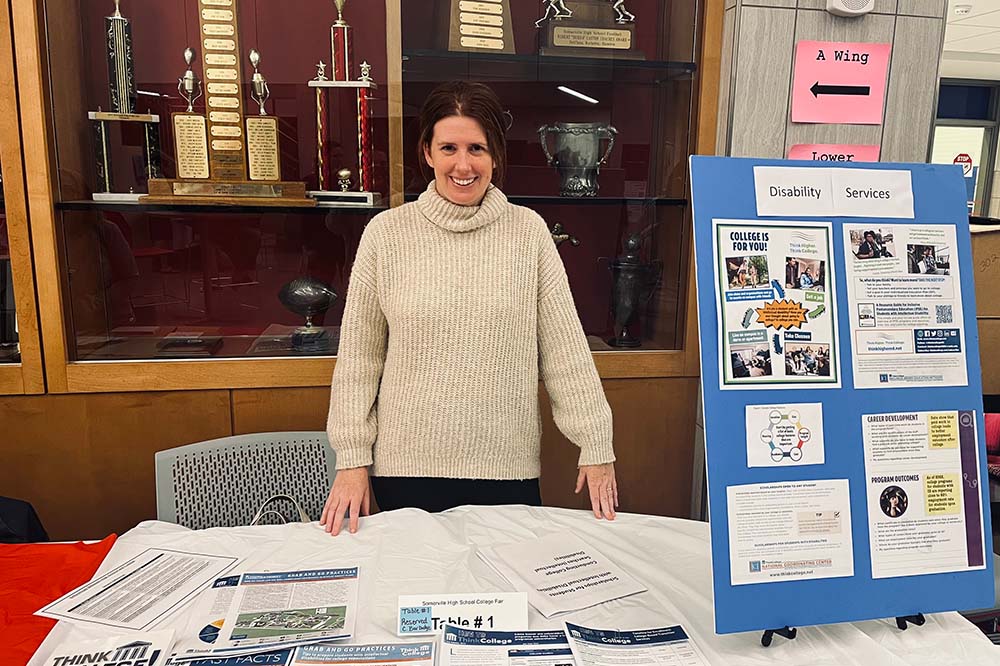Opening Doors to College and Community Life
Planning for life after high school can feel overwhelming—but the right tools make all the difference. Whether you're a student, family member, educator, or service provider, these resources are designed to support inclusive college pathways and successful transitions for students with intellectual and developmental disabilities in Massachusetts.
Explore practical strategies, real-world examples, and effective practices that help students build skills, navigate college life, and achieve greater independence in school, work, and the community.
Grab and Go Practices
NEW
By Zachary Chipman
This brief highlights how structured, individualized work-based learning at Bridgewater State University supports students with intellectual and developmental disabilities in building career skills, confidence, and real-world experience. It outlines the collaborative practices, campus partnerships, and scaffolded supports that help students explore interests, develop employability skills, and prepare for competitive, integrated employment.
By Maria Paiewonsky
This brief highlights the importance of flexible, accessible transportation for students with intellectual and developmental disabilities pursuing inclusive college experiences. It outlines practical travel options—such as public transportation solutions, paratransit services, and ride-sharing—to promote independence and fuller campus participation.
By Rachel Connary and Maria Paiewonsky
This publication reimagines transition planning by focusing on inclusive postsecondary education and competitive employment rather than traditional service models. It highlights effective travel training practices—including ride-sharing and transit use—that expand access to college, work, and community life, particularly in areas with limited public transportation.
By Maria Paiewonsky and Christine Lenehan
This guide explores the essential role of educational coaches in college-based transition services for students with intellectual and developmental disabilities. It addresses key staffing challenges—such as budgeting, job roles, and training—and shares practical solutions developed by school and college teams.
By Ashley Luce
This resource shows how inclusive higher education programs support students in taking ownership of their goals and schedules through person-centered planning. It offers timing strategies and student examples that demonstrate how self-direction skills lead to academic and personal success.

Fact Sheets
By Ashley Luce
This fact sheet describes the central responsibilities of program coordinators in inclusive higher education, emphasizing their leadership in program development and daily student support. It outlines how effective coordinators build partnerships, coordinate services, and lead education and training on campus.
This guide explains the criteria for participating in Massachusetts Inclusive Postsecondary Education (MAIPSE), including age, disability, and diploma status. It also outlines student readiness factors—such as personal goals, interest in college, and transportation planning—to support informed eligibility decisions.

